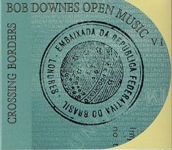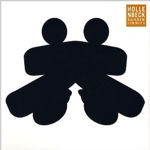Home » Jazz Articles » Profile » In Memoriam Harrison Ridley Jr.
In Memoriam Harrison Ridley Jr.
Ridley hosted 'The Historical Approach to the Positive Music' Sunday evenings on WRTI FM, presenting an encyclopedic knowledge of jazz in a relaxed atmosphere punctuated by his signature phrase 'yes, indeedy.'
 In 2001 the City of Philadelphia proclaimed February 28 Harrison Ridley Jr. Day, in honor of the great jazz DJ, educator and Philadelphia native, and "urged all citizens to be aware of Mr. Ridley's sincere love, commitment, and dedication to this unique American art form". Ridley hosted "The Historical Approach to the Positive Music" Sunday evenings on WRTI FM, presenting an encyclopedic knowledge of jazz in a relaxed atmosphere punctuated by his signature phrase "yes, indeedy". He died February 19, 2009, at the age of 70. In a poignant coincidence, his memorial service was held on February 28, 2009, at the Lutheran Church of the Holy Communion on Chestnut St.
In 2001 the City of Philadelphia proclaimed February 28 Harrison Ridley Jr. Day, in honor of the great jazz DJ, educator and Philadelphia native, and "urged all citizens to be aware of Mr. Ridley's sincere love, commitment, and dedication to this unique American art form". Ridley hosted "The Historical Approach to the Positive Music" Sunday evenings on WRTI FM, presenting an encyclopedic knowledge of jazz in a relaxed atmosphere punctuated by his signature phrase "yes, indeedy". He died February 19, 2009, at the age of 70. In a poignant coincidence, his memorial service was held on February 28, 2009, at the Lutheran Church of the Holy Communion on Chestnut St.Harrison Ridley Jr. was born and raised in North Philly, the oldest of ten children. After graduating high school and serving two years in the Army he returned home to Philadelphia, taking a custodian's job at the Board of Education Building. He had an exemplary work record, the first thirty years without an absence. During his lifetime Harrison was honored with some 80 citations and awards in recognition of his work as an educator. He was a consultant to the Library of Congress. He taught at the West Philadelphia Cultural Alliance, the Clef Club, the Villanova University Honors Program, and the African—American Studies Department at Temple University. He was awarded the degree of Doctor Honoris Causa from Villanova University.
At the memorial service on February 28 Karima Bouchenafa, Associate Director of the Honors Program at Villanova, paid tribute to the educator. "Harrison Ridley Jr. knew the history behind the music. He could talk about an early recording of Louis Armstrong, tracing its influences back through New Orleans marching bands, incorporating classical music from Europe, arising from the blues and field hollers, going back to its African origins, and moving forward in time through swing, big band, bebop, free jazz and up to the present moment. He was a griot, and could tell the history of his people through their music.
"Dr. Ridley used to say that you can't understand the history of jazz without understanding African and African—American history and culture. Villanova recognized his life's work and achievement with the degree of Doctor Honoris Causa. Dr. Ridley earned his degree not from attending classes but by teaching them. It's important to remember that he achieved all that he did while being entirely self-taught. Dedicated work, community service, and scholarly achievement are what Villanova honored Dr. Ridley for, and that is why we honor him for here today. His memory and his example will be with us always".
The eulogy was delivered by another great voice of Philadelphia radio, WRTI jazz host Bob Perkins—known to listeners as "BP with the GM" (or Good Music). "Harrison had a collection of about 12,000 records; many of them signed by the artists. When an artist came to Philly to perform Harrison would seek them out, adding to his knowledge of the music. Harrison was the quintessential source of knowledge about jazz. If anyone had a question about a jazz subject, he was the final arbiter—the Supreme Court Judge of jazz. When WRTI offered him a four - hour time slot on Sunday evenings to do a program, he didn't accept at first. He later told me he had not been sure he could meet the commitment of creating a quality program of that length every week. But he finally did accept, and how, and in the thirty-two years he worked at WRTI he only missed three broadcasts. Yes, indeedy.
"Along the way the honors accumulated. I started calling him 'Doctor' about ten years before the University did, so I was among the first to call him 'Dr. Ridley.' All this time of course he was working as a custodian at the Philadelphia School Board Building. In thirty-seven years on the job there he missed less than a week's work. I used to tell him he was raising the position of custodian to an art form. The example of our friend Harrison's life reminds me of a passage from an essay by Ralph Waldo Emerson, who wrote: 'In our time we see so many men selfishly pursuing wealth and fame, that we seldom find the example of a man who forgets himself into greatness.' And that is what our friend Harrison did. He became a custodian of the positive music. He will be missed."
CODA
The next day was a Sunday and Bob Perkins was back at the mic on WRTI for his regular Sunday morning program. During a break he read for the last time the news of Dr. Ridley's passing. "Our friend Harrison passed on this month. He fell ill last November. He struggled, fought the good fight, but it was not to be. He passed on February 19, the same date as another jazz great from Philly, Lee Morgan. We gave him a memorial service yesterday at the Lutheran Church of the Holy Communion. The mood of the service was not mournful, as we honored a lifetime of work and achievement. Harrison Ridley Jr.'s extensive family was well represented, as were his coworkers and the WRTI staff, and I think many of his listeners. There was music and singing. There was laughter at appropriate moments. He will be missed. But we will carry on. "
Then Perkins announced the station's enduring tribute to the late great Dr. Ridley: WRTI will continue to use his program title, with a new DJ. " So keep your finely tuned ears right here Sunday nights at 8 PM for the Historical Approach to the Positive Music, with your host, Jeff Duperon, and give a listen."
Tags
PREVIOUS / NEXT
Support All About Jazz
 All About Jazz has been a pillar of jazz since 1995, championing it as an art form and, more importantly, supporting the musicians who make it. Our enduring commitment has made "AAJ" one of the most culturally important websites of its kind, read by hundreds of thousands of fans, musicians and industry figures every month.
All About Jazz has been a pillar of jazz since 1995, championing it as an art form and, more importantly, supporting the musicians who make it. Our enduring commitment has made "AAJ" one of the most culturally important websites of its kind, read by hundreds of thousands of fans, musicians and industry figures every month.























